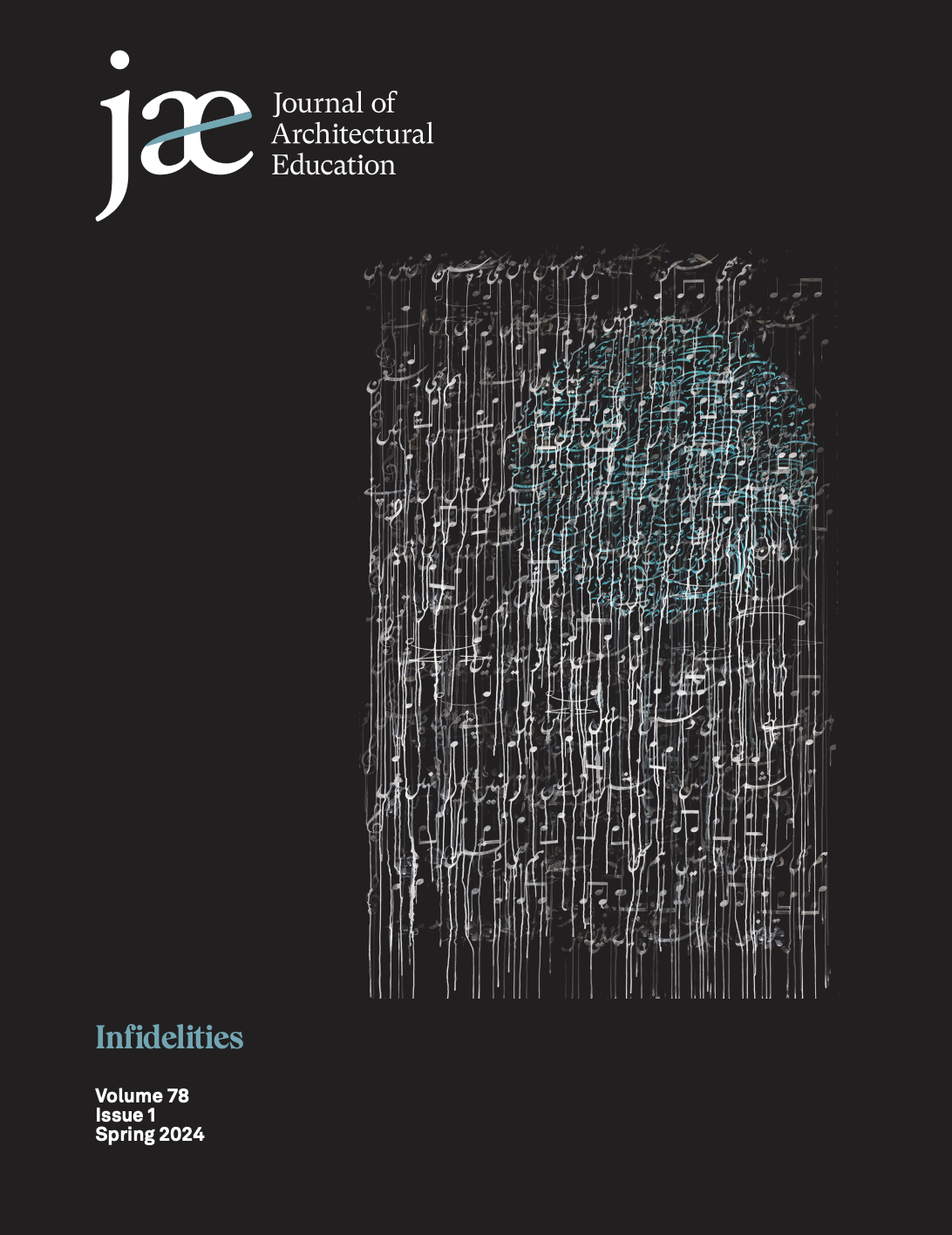
JAE 78:1 Spring 2024
Infidelities
March 25, 2024
Theme Editors
Aya Musmar
The University of Petra
Nishat Awan
UCL (Urban Lab)
Menna Agha
Carleton University
Ozayr Saloojee
Carleton University
Ottawa, Ontario
Ottawa, Ontario
March 25, 2024

Current and Past Issues
Go Back
Catastrophe & Belief
Resolution & Ephemerality
Refuge & Relation
Making & Unmaking
Knowing & Un-Knowing






